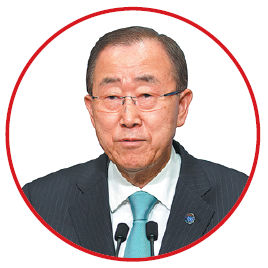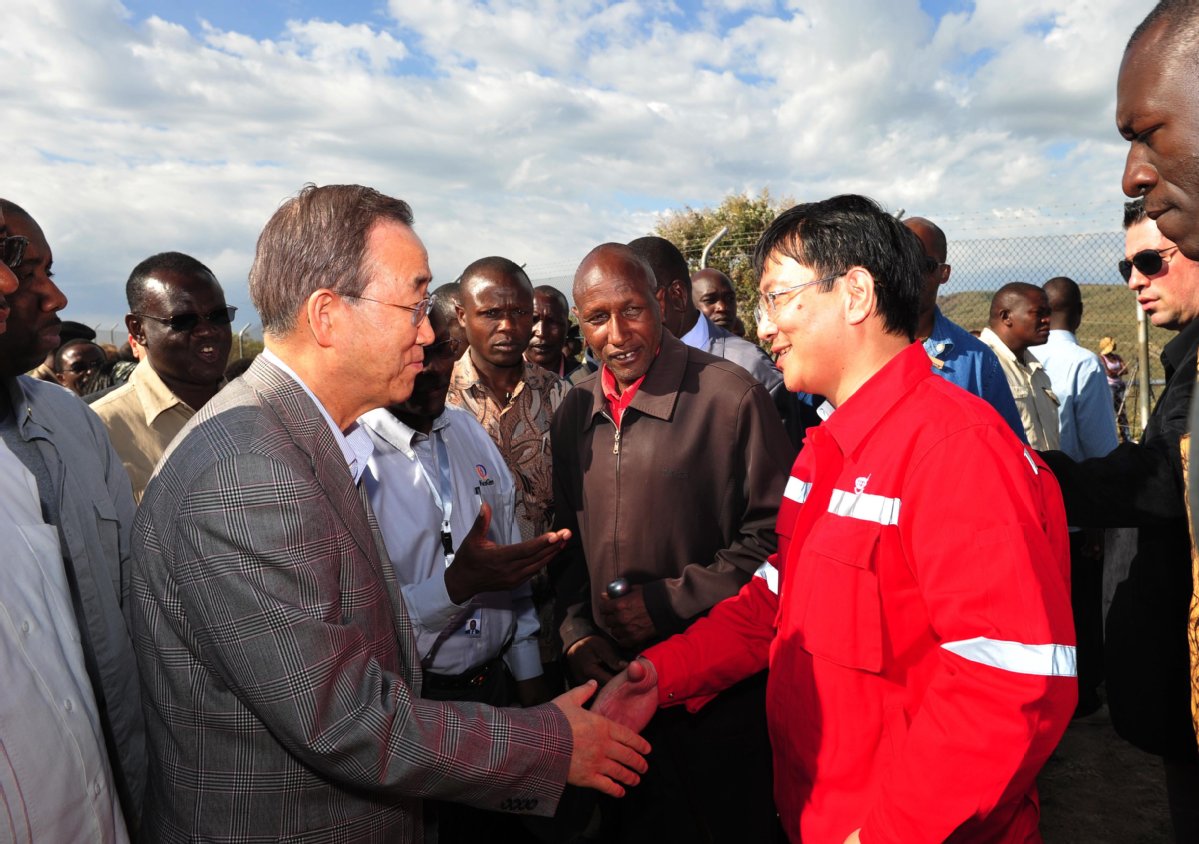
June 13, 1944
EDUCATION:
1970: BA in international relations from Seoul National University, Republic of Korea
1985: Master of Public Administration from Harvard University, United States
CAREER:
1987-90: Counselor at the ROK embassy to the United States
1990-92: Director of American affairs at the ROK Foreign Ministry
1995-96: ROK vice-minister for Policy Planning and International Organizations
1996-98: National security adviser to the ROK president
1998-2000: ROK ambassador to Austria
2000-01: ROK vice-minister of foreign affairs
2003: Foreign policy adviser to the ROK president
2007-16: United Nations secretary-general
2018: Chairman of the Boao Forum for Asia
Ban urges China to increase presence on world stage

China released its national plan for implementing the goals in 2016, which Ban said "perfectly incorporated its domestic development plan with an international commitment".
Within the goals, he said climate change is "one of the most concerning issues".
One of his earliest major initiatives at the UN was the 2007 Climate Change Conference, followed by extensive diplomatic efforts that helped put the issue at the forefront of the global agenda.
Ban said he pays a lot of attention to climate change because it is altering the Earth's character and creating dire risks and instability.
"From record-breaking heat waves and wildfires, to hurricanes and flooding of historic intensity, climate change is no longer a debate. It is clearly here right now. The extreme weather events of just the last few months alone point to a bleak and dangerous future," he noted.
"This summer, California has been engulfed in flames and smoke from historic wildfires. Intense and prolonged heat waves claimed dozens of lives in Japan and the Korean Peninsula. And near Greenland, the Arctic's thickest sea ice broke up for first time on record. These events no longer seem like anomalies; rather, they appear to be the new normal."
He added that the necessary steps should be taken to combat climate change otherwise these turbulent shifts will continue to bring dangerous scorching heat waves to cities and rural areas, which will drive displacement and seriously threaten entire communities and countries.
With this reality in mind, Ban is happy to see that many countries, including China, are stepping up collective efforts to implement the Paris climate agreement.
Ban regards the signing of the agreement as one of his most significant achievements during his tenure at the UN, and he believes that it offers scope to counter the serious threats to the planet.
The agreement, signed by nearly 200 countries in 2015, set viable targets to impede rising temperatures, constrict emissions of greenhouse gases and spur climate-resilient development and green growth.
"To achieve these goals, we need to keep working together," Ban said, adding that he is deeply disappointed that the United States has withdrawn from the agreement, and the move isolates the US from every other country in terms of climate policy.
"It is scientifically wrong and economically irresponsible, and it will be on the wrong side of history. I greatly hope that this decision is reconsidered and reversed," he said.
However, he believes that there are still many reasons for optimism.
He said China's growing climate leadership in these difficult times for the planet has the potential to positively affect the Asian region and the world at large. The country's decision to set a deadline to completely phase out sales of fossil-fuel-powered vehicles is a sterling example in this regard, he added.
Ban said he also greatly values China's contribution to UN peacekeeping pledges, adding that the country's contribution of troops for UN missions in complex and challenging environments is "a role model for other countries".
He listed China's contributions to the promotion of peace and security in Syria, Afghanistan, Myanmar, Sudan and South Sudan, and encouraged the country to remain focused on these issues.
"This not only shows that China is a peace-loving country, but it is also taking more responsibility to bring peace to other places in the world," he said.
Born in the Republic of Korea in 1944, Ban witnessed how the Korean War (1950-53) destroyed buildings, separated families and damaged economies.
"I grew up in war, and I saw the UN help my country recover and rebuild. That experience was a big part of what led me to pursue a career in public service," he said.
Established in 1945, the UN was designed to provide an international forum for the maintenance of global peace and security as the ashes of war dispersed. Although the UN had numerous critics at the time, Ban said the organization offered all nations and peoples an alternative to the bombs, guns and destruction of World War II.


